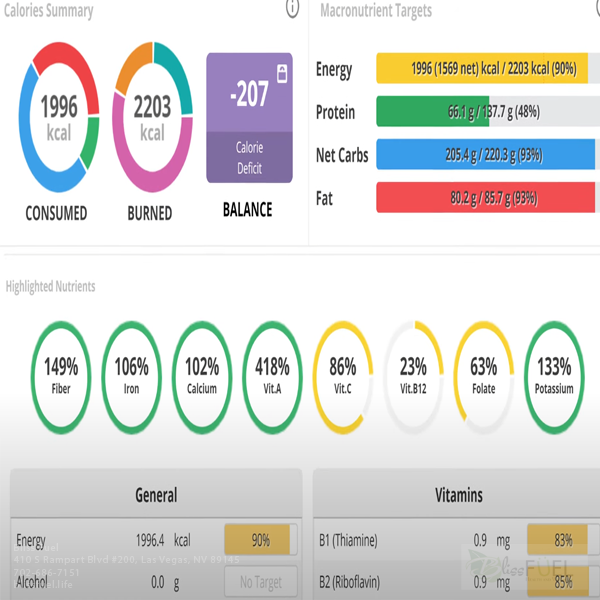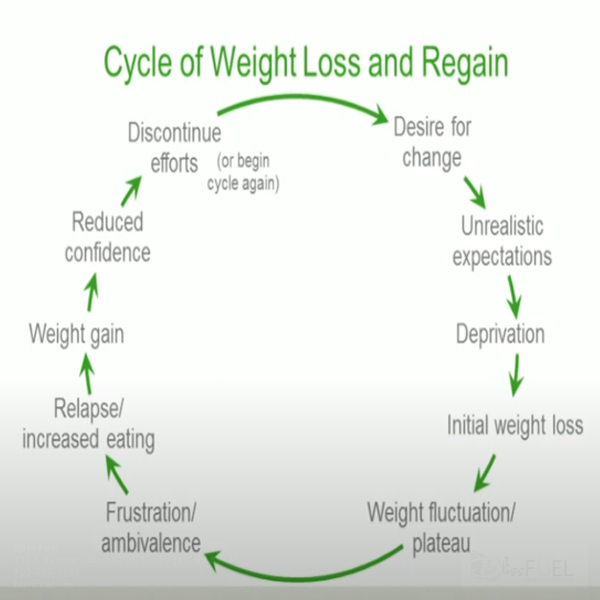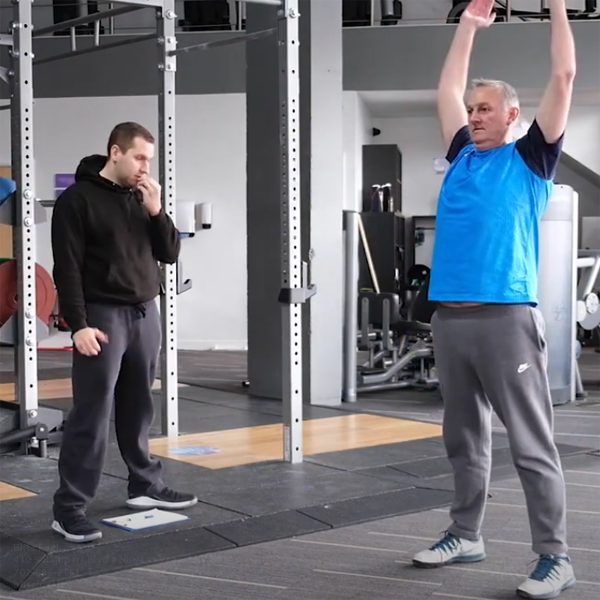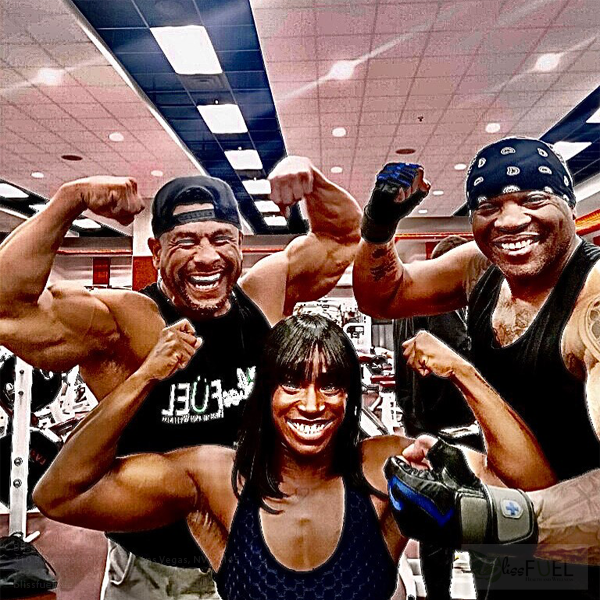
Your brain may be operating against you when you’re under a lot of pressure about losing weight. You may convince yourself that you are not good enough, too big, or unattractive. You might notice that you are constantly telling yourself these negative thoughts. Cognitive therapy can help you reshape your thinking to achieve your successful weight loss journey. Cognitive-behavioral therapy can assist you in developing a more optimistic mindset, which will aid you in remaining motivated and on track to lose weight.
What Is CBT-OB For Weight Loss
CBT-OB is a form of cognitive therapy that addresses the issues of bias and the impact of certain behaviors in losing weight. It is typically one-on-one counseling with an experienced CBT therapist who teaches patients how to reflect on their behaviors and the consequences they can have. It also involves preparatory steps before the first session. Throughout the coaching sessions, the behavioral therapist will help the client identify their obstacles to weight loss and encourage them to work on those obstacles.
Therapy might take between four to more than twenty coaching sessions, depending on the subject being treated. CBT is not meant to be continuing, but old concerns may be revisited throughout new therapy. CBT may be provided by counselors, therapists, and psychologists. Certain types of health insurance coverage may pay a portion of the expenditures.
The following is a list I’ve created in CBT that you and your practitioner should discuss:
- Identify an objective
- Identify impediments to achieving the aim
- Reframe your ideas to overcome such impediments
- To reinforce new and better cognitive patterns, practice new actions.
Additionally, CBT may assist with a variety of difficulties, including the following:
- Anxiety
- Depression
- Phobias
- Problems associated with drug abuse (SUDs)
- Eating Disorder
- Insomnia
- Relationships
- Self-esteem
- Psychopathologies
- Severe Obesity
Unlike other types of treatment, which place a greater emphasis on how previous experiences affected present actions, CBT is more concerned with your current functioning. While your behavioral therapist may require some previous information to understand you better, most of your time will be spent addressing contemporary concerns.
How A Weight Loss Coach Can Assist You To Train Your Mind To Lose Weight
Cognitive-behavioral therapy for weight loss may be the answer for you. Individual or group sessions may help you change your negative thinking patterns and feelings that lead to weight gain. In some cases, this therapy is more effective than a traditional diet. Some medical weight management centers also offer cognitive therapy. A highly qualified professional therapist can assist you in achieving and maintaining a healthy weight, diagnose and treat an eating disorder, and improve your mental health.
A trained health coach can assist you in losing weight and maintaining it. Weight loss often includes losing excess weight and shedding your mentality: When nothing appears to work, the “Why bother?” mindset might emerge. You may have ideal healthy eating habits, yet you feel tempted to secretly take food or consume it. Because you are unlikely to eat in front of your nutrition coaches, you are more likely to hold to your weight loss goal.
While many people have a psychological relationship to food, particularly when it comes to emotional eating and improper nutrition plan, not all of these individuals have a professionally recognized disorder. On the other hand, cognitive therapy is helpful for those suffering from a variety of eating disorders, such as anorexia, binge eating disorder, and bulimia nervosa. Cognitive therapy for obesity seeks to help patients modify their negative thoughts and feelings about food to more effectively manage their behavior change. With your health coach, discuss strategies for using CBT to lose weight.
Techniques For Utilizing Cognitive Behavioral Therapy In Conjunction With Your Weight Loss Coach
Cognitive factors contribute to eating behaviors that contribute to excess body calories. CBT works to counteract these effects by developing new positive psychology habits. Here are some practical strategies that I’ve compiled for incorporating CBT into your weight loss coach that will assist patients in reducing the cognitive variables that contribute to overeating, emotional eating,
regaining control, and generally improving their mental health with your personal trainer.
Establishing Goals
CBT begins with the establishment of goals. CBT has three essential purposes when it comes to weight loss:
- Attain your desired weight range
- Maintaining your goal weight needs a lifestyle change.
- Maintain a consistent mental health condition about proper nutrition.
During coaching sessions with a personal weight loss coach, you may be able to break down each primary target into smaller, more specific, and attainable objectives. For instance, the aim of attaining your desired weight range may comprise more, more succinct purposes, such as the following:
- Lunching on water rather than soda
- Breakfasting on fruit rather than pancakes
- Park your automobile farther away from the workplace to allow for more walking
Personal Monitoring

Your personal trainer will urge you to examine your conduct during CBT to identify possible setback triggers. These may include the following:
- Easy access to calorie-dense meals
- Consumption of boredom
- Consumption of food under duress
- Sampling while you create cuisine
- Consumption behaviors such as munching while watching television
These triggers lead to habits that work against your weight management thinking.
As soon as you detect a trigger, take prompt corrective action, including the following:
- Eliminating calorie-dense items from your cupboard
- Maintaining an interest in a hobby or physical activity
- Utilizing stress-management approaches such as mindfulness training
- Gum chewing during meal preparation
Your objective is to identify probable blunders early on, so they do not ruin any progress you’ve achieved.
It’s advisable to be on the watchtower for the “day off” mentality, which might result in complete abandonment of your ambitions. To counteract this, consider the following: Allow yourself a pleasure — but just one — and savor it.
Self-monitoring may also be used for daily accomplishments. For instance, keep a meal plan and use a highlighter to draw attention to the proper nutrition you’d want to include more in your everyday life. Have fun with the process and set a weight loss goal for a wholly highlighted day.
The same concept holds for workout tracking. Create a timetable that alternates cardio and strength training days, such as cardio one day and strength training the next, or any other weight loss program you like.
You may choose to see a registered dietitian who can help you track and design an appropriate nutrition plan to battle obesity and weight gain and accomplish the desired lifestyle change.
Positivity

You need not search far to discover someone with an optimistic outlook. The fact that you are participating in this process is cause for celebration and optimism.
It might be beneficial to discover an inspirational weight reduction coach, such as Val Ledesma, who has traveled this path before you and achieved a healthier lifestyle. Val has been competing in bodybuilding for 15 years and consistently finished in the top three places; despite this, he always stood on the award podium throughout his career. He is a natural competitor and a positive psychologist that has an extraordinary capacity to produce good energy in all spheres of life. If he can achieve it, then you can as well.
System of Incentives
Tracking your meals and exercise is not just to provide feedback and encouragement. Additionally, it may be incorporated into your incentive system.
While the primary intrinsic motivation is your future goal weight, getting there might take time. Meanwhile, reward yourself along the way when you achieve small targets to help sustain momentum.
How CBT-OB Works
CBT-OB aims to create a healthy weight loss mindset. It also helps patients identify weight gain triggers and take preventive action. The process allows the patient to develop a consistent weight control mindset; This will help the patient manage their body’s weight more effectively. The key to a successful weight loss treatment is the ability to change the perspective of those who need to maintain healthy habits. It is essential to know that cognitive therapy for successful weight loss is not for everyone. It will help you find a method that works for you.
The first phase of the CBT-OB treatment is called the preparation phase. The preparation phase involves the delivery of two or three counseling sessions with your health coach. It helps the therapist assess the patient’s current weight and determine whether he should offer other treatments. It is recommended that therapists who deliver this therapy receive a training course in the field. The next phase of the treatment is the final stage, known as the behavioral support component.
CBT focuses on the behavioral aspect of weight loss. CBT may assist if you already know how to control your weight but are having difficulty motivating yourself to do so. For instance, if you halt your diet plan each time the workplace has a dessert day, you might undercut your moderation efforts.
How Weight Loss Coaching Can Integrate With Your CBT-OB Weight Loss Program
In the case of cognitive therapy for weight loss, the primary goal is to change the person’s thoughts about food and exercise. The process of achieving this goal requires the patient to impact their lives positively. This treatment is highly effective and can lead to permanent weight loss. It will also help people overcome stress, intense emotions, and food cravings. The cognitive approach will help them change their thoughts and behaviors to lose the weight they want.
Using A Weight Loss Coach As A Support System
During cognitive therapy, clients learn how to take control of their eating habits. They will learn to monitor their food intake and avoid consuming unhealthy food. In addition, they will learn how to reduce their TV and phone usage and become more mindful of their fad diets. As they continue to work on their weight goals, they will benefit from the support of their loved ones. Many of these individuals will also benefit from this treatment because it can prevent obesity in the long run.
If you’re having trouble losing weight with weight-loss programs like “Weight Watchers,” examine what you’re eating and drinking, as well as how much activity you’re getting. While most people do not need Weight Watchers training to lose weight, it is vital to eat and exercise your body. Nobody benefits from sitting about all day.
Please do not hesitate to contact us! At blissfuel.life, we will guide you in the right direction. By employing our tremendous experience, we want to assist you in improving your workouts, diet, and life. We are here to support you at Blissfuel, whether you need basic support or substantial training.
The Bond Between Weight Loss Coaches and Clients
The weight loss therapist will help the patient develop a trusting relationship during counseling. They will assess the nature of the patient’s obesity and address questions and concerns. The first step in weight loss is setting small, measurable goals; This will help the patient make the most of their sustainable weight loss program. They will also learn to change their eating habits. It will take a while, but the process will be much easier once the new routines have been created.
As a weight loss coach, I recommend using sports medicine to help you improve your focus and energy during training; it can also support you in sustaining energy throughout training sessions. Using our sports medicine, you may lose between 5% and 10% of your starting body weight and perhaps improve your health by lowering your blood sugar, blood pressure, and cholesterol levels.
Our sports medicine helps maintain muscle mass and strength during weight loss and has powerful fat loss support to Burn more calories and lose weight without adding extra effort or crashes. It can increase endurance during exercise, Support enhanced aerobic capacity, and reduce muscle fatigue, allowing you to train longer, more complex, and more intensely before tiring out.
Receive Support From Your Weight Loss Coach!
If you’ve been looking for weight loss assistance and are wary of doing everything on your own with little to no direction, you owe it to yourself to give us a try. Our assigned weight loss coach will be by your side to ensure that you achieve your objectives while also developing the correct mentality to maintain your weight reduction.
Weight loss coaching provides an opportunity to speak with a professional specialist and provides direction via different weight reduction approaches. Our weight loss coach will assist you in burning body fat and achieving your weight loss goals with easy meal substitutions and demonstrations of proven habit workouts.
Val Ledesma has been in the bodybuilding industry for over two decades, earning NPC bodybuilding championships along the way to being recognized in Muscle & Fitness as light heavyweight champion in 2015 and most recently as the 2021 Steve Karr Las Vegas Classic Men’s Overall Champion.
Val has achieved success in various areas of life and fitness and is the founder and owner of Bliss Fuel Wellness Coaching. He shares his expertise with everyone to assist others in achieving their objectives.






0 Comments